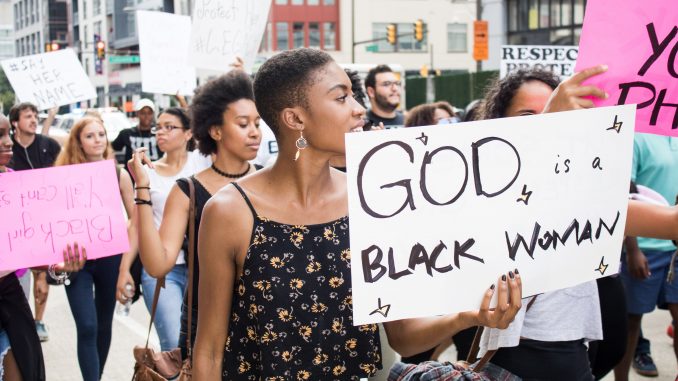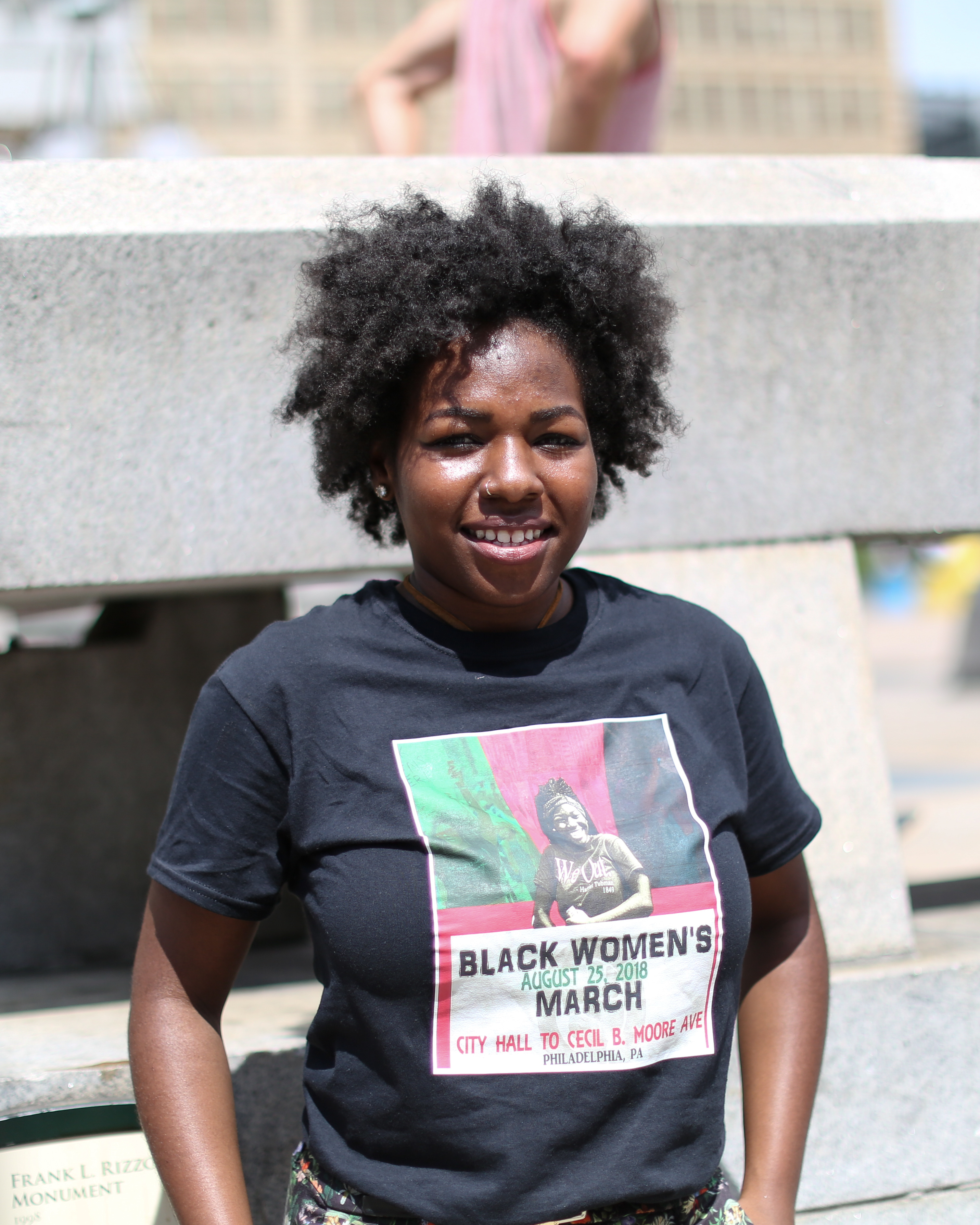
After attending women’s marches and protests, India Fenner realized the events didn’t discuss issues that affect Black women.
So she started her own.
Fenner organized the Black Women’s March, an event to celebrate Black women and bring attention to the various forms of oppression they experience. The second-annual march took place Saturday afternoon in Center City.
“I realized that I could be doing more in my community, and this was my way of getting more involved,” said Fenner, a junior studying Africology and African American Studies and political science at Temple University.
The march began outside City Hall at 2 p.m and proceeded north on Broad Street before concluding on Cecil B. Moore Avenue around 4 p.m. Approximately 100 people attended the march – about the same size as last year’s crowd. They carried posters and signs displaying messages like, “When America catches a cold, Black people get the flu, and Black women get pneumonia” and, “Protect Black Women. Respect Black Women. Listen To Black Women.”
Aimed at celebrating Black women, the march also sought to bring attention to issues Black women face on a daily basis including racism, sexism, homophobia, transphobia and oppression.
“This march is for the community to remind black women to have faith in themselves even when others think little of them,” Fenner wrote in her Facebook post for the event. “To remind them that they’re beautiful in every shape & form. To remind & inspire them that they can do anything they put their minds to and that they are UNSTOPPABLE.”

Fenner is also a member of Temple’s National Council of Negro Women chapter, Temple’s Progressive NAACP chapter and the Black Student Union. She said the 2017 and 2018 Black Women’s Marches each took a few months for her to plan, but she expects to plan the next one for a whole year.
For the 2019 event, Fenner plans to organize a joint march in Washington D.C. alongside Black Women’s Blueprint, an organization that aims to secure social, political and economic equality for Black women and girls.
Many Temple students showed up on Saturday to show their support for the cause.
“It’s all about appreciation and love across the board,” said Kaicey Baylor, a senior journalism student.
For Rozime Lindsey, a 17-year-old South Philadelphia resident who studies at the Girard Academic Music Program school, attending the event was about respect.
“Black women don’t have enough respect in this country and more people need to support this,” he said.
Policymakers from across the city also turned out to Saturday’s march.
“Understand we are here, and we are here to stay,” said Councilwoman Cindy Bass, one of the five speakers at the march. “Join in with us.”
Stories Fenner heard from Black women in the past prompted her to seek out performers to speak at the Black Women’s March and make the untold stories of encounters with problems like classism, racism, depression and oppression go public.
“Hearing the stories was a moral lesson to talk about depression and other personal stories that are untold,” Fenner said.
Shirmina Smith and Ruja Ballard, two women from local poetry collective Your Favorite Jawns, performed powerful poetry pieces at the march about the racism Black women experience.
“[Black women] are always in the front of the movements, but never the face,” they said in their performance.
Last year, Fenner completely self-funded the march, but this year she reached out for financial support via the crowdfunding website GoFundMe. Fenner successfully crowdsourced more than $1,000, which went toward the protest permit, equipment and compensating speakers and performers at the event.
Fenner also plans to donate $500 to we.REIGN, a Philadelphia-based nonprofit organization that advocates for social justice and equal opportunities for Black women, particularly equal education opportunities for minority youth.
Even with the 2018 march in the books, Fenner said the current political climate in the U.S. means the fight isn’t over.
“[There is] so much more to be done,” Fenner said.












Be the first to comment